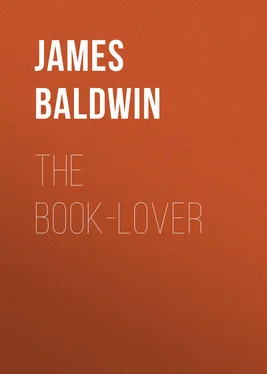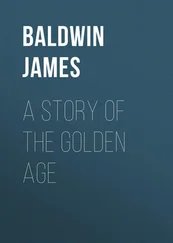It is generally better to read by subjects, to learn what different writers have thought and said concerning that matter of which you are making a special study. Not many books are to be read hastily through. “A person who was a very great reader and hard thinker,” says Bishop Thirlwall, “once told me that he never took up a book except with the view of making himself master of some subject which he was studying, and that while he was so engaged he made all his reading converge to that point. In this way he might read parts of many books, but not a single one from ‘end to end.’ This I take to be an excellent method of study, but one which implies the command of many books as well as of much leisure.”
Seneca, the old Roman teacher, says: “Definite reading is profitable; miscellaneous reading is pleasant… The reading of many authors and of all kinds of works has in it something vague and unstable.”
Says Quintilian: “Every good writer is to be read, and diligently; and when the volume is finished, it is to be gone through again from the beginning.”
Martin Luther, in his “Table Talk,” says: “All who would study with advantage in any art whatsoever ought to betake themselves to the reading of some sure and certain books oftentimes over; for to read many books produceth confusion rather than learning, like as those who dwell everywhere are not anywhere at home.”
“Reading,” says Locke the philosopher, “furnishes the mind only with materials of knowledge; it is thinking that makes what are read over. We are of the ruminating kind, and it is not enough to cram ourselves with a great load of collections; unless we chew them over again, they will not give us strength and nourishment.”
“Much reading,” says Dr. Robert South, “is like much eating, – wholly useless without digestion.”
“Desultory reading,” writes Julius C. Hare, “is indeed very mischievous, by fostering habits of loose, discontinuous thought, by turning the memory into a common sewer for rubbish of all thoughts to flow through, and by relaxing the power of attention, which of all our faculties most needs care, and is most improved by it. But a well-regulated course of study will no more weaken the mind than hard exercise will weaken the body; nor will a strong understanding be weighed down by its knowledge, any more than oak is by its leaves or than Samson was by his locks. He whose sinews are drained by his hair must already be a weakling.” 10 10 Guesses at Truth, by Two Brothers , 1848.
Says Thomas Carlyle: “Learn to be good readers, – which is perhaps a more difficult thing than you imagine. Learn to be discriminative in your reading; to read faithfully, and with your best attention, all kinds of things which you have a real interest in, – a real, not an imaginary, – and which you find to be really fit for what you are engaged in. The most unhappy of all men is the man who cannot tell what he is going to do, who has got no work cut out for him in the world, and does not go into it. For work is the grand cure of all the maladies and miseries that ever beset mankind, – honest work, which you intend getting done.”
Конец ознакомительного фрагмента.
Текст предоставлен ООО «ЛитРес».
Прочитайте эту книгу целиком, купив полную легальную версию на ЛитРес.
Безопасно оплатить книгу можно банковской картой Visa, MasterCard, Maestro, со счета мобильного телефона, с платежного терминала, в салоне МТС или Связной, через PayPal, WebMoney, Яндекс.Деньги, QIWI Кошелек, бонусными картами или другим удобным Вам способом.
Robert Collyer: Addresses and Sermons .
The Doctor , Interchapter V., 1856.
Arthur Schopenhauer: Parerga und Paralipomena , 1851.
The Elements of Drawing, in Three Letters to Beginners , 1857.
The Spectator , No. 166.
Fortnightly Review (April, 1879), – “On the Choice of Books.”
Parerga und Paralipomena (1851).
The Critic (July 5, 1884), – “Leisure Reading.”
John Ruskin: Sesame and Lilies .
Guesses at Truth, by Two Brothers , 1848.












